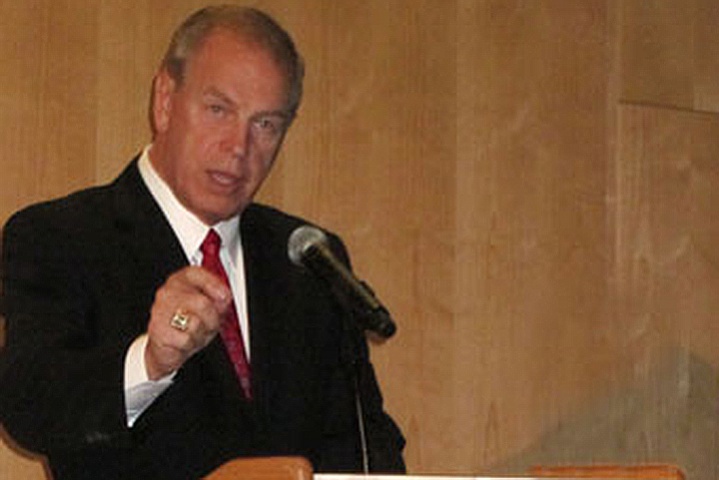Rebuilding Manufacturing: MIT Political Science Distinguished Speaker Series featuring Ohio Governor Ted Strickland
A Governor's view from the center of the country

Ohio Governor Ted Strickland
In a troubled economy where those in power seem most interested in pointing fingers, it is refreshing to hear someone instead talking about solutions. At the lecture he gave in the MIT Media Lab on October 31, former Ohio Governor Ted Strickland focused on the nation's path forward rather than the rocky road behind.
Strickland opened with the fabled story of the Wright brothers' first flying machine, and how this tale of historical innovation and creativity should act as a blueprint for strengthening the American economy. That first primitive airplane served as the foundation for what has become a massive aviation industry, thanks to Strickland's favorite economic champion, manufacturing.
As a Midwestern Rust Belt governor with what he calls "quiet pride," Strickland's view of manufacturing as a key solution to the nation's economic woes is not wholly surprising. Strickland said of his fellow Midwesterners, "for us, manufacturing is deeply personal." However, what is unique about Strickland's perspective is his overwhelming enthusiasm for green technology. In his time as governor, Strickland advocated for cooperation between government and the private sector through a program called "Ohio Third Frontier," referring to its goal to build "an innovation economy." He highlighted Ohio's successful efforts to attract green industry through policy initiatives that reward companies that hired Ohioans and contributed to the local communities. Through these partnerships, Ohio was also able to shore up its community college system, training skilled workers for the expanding industry.
In addition to the revival of manufacturing, Strickland also emphasized the need for new industrial policy to encourage the rejuvenation of the middle class. He acknowledged the "silent crisis" that he said appears to be still invisible to those in power. According to Strickland, the 2009 stimulus should have been double what it was, if it was to generate any real hope of salvaging the middle class. Also, the American people cannot allow the corporate culture to perpetuate a "devaluing of the worth of manual work", a troubling pattern he sees in various states' efforts to undermine collective bargaining.
Strickland's clear allegiance to American manufacturing should not be confused with a blind disregard for the realities of the current economic struggle. Rather than rely entirely on the government, Strickland would recommend industrial policy that encourages private industry to take the lead. "Government can be the catalyst," Strickland said, without necessarily being the engine.
There is no easy way out of the current economic debacle, but Strickland outlined what he sees as clear steps to be taken in both industrial policy on a federal level and in private industry that will jumpstart growth in the American economy. Strickland's successes during his time as governor can serve as a guide for economic resurgence on a national level. With the motivating spirit of collaboration, Strickland hopes that we can make a healthy return to prosperity, not only to ensure the survival of the "American dream", but so that proudly "we can tell our children, 'I created that, I built that, I made that work.' "